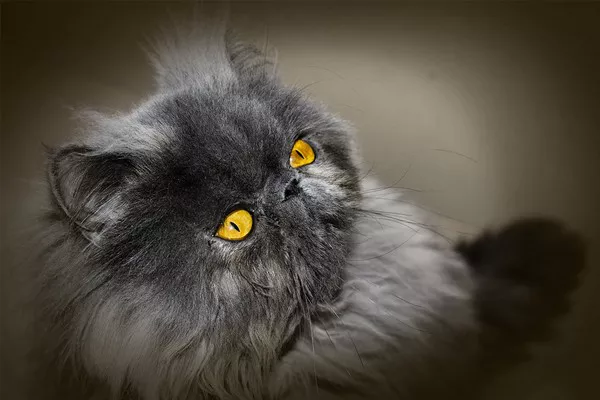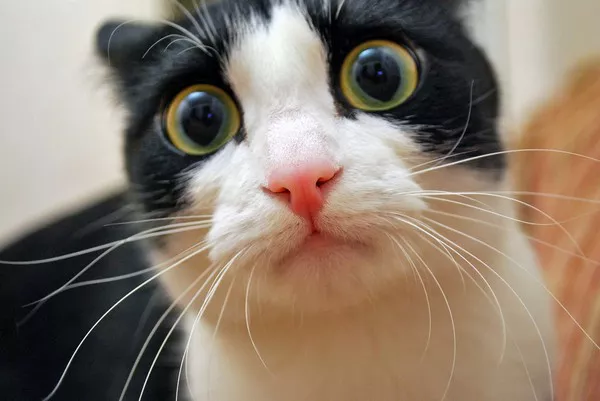Lactation is a crucial phase in a mother cat‘s life, as it directly impacts the health of both the mother and her kittens. During this period, a nursing cat requires a significantly increased intake of nutrients to produce the milk necessary for her kittens’ growth and development. Proper nutrition is essential not only to ensure the mother’s well-being but also to support the healthy development of the kittens. In this article, we will explore the best food options for lactating cats, how to meet their nutritional needs, and how to optimize their diet for the best possible outcome.
The Increased Nutritional Needs During Lactation
The nutritional demands of a lactating cat are considerably higher than those of a non-lactating cat. As she nurses, the mother cat’s body uses more energy to produce milk, and this process requires a carefully balanced diet to keep her healthy and to ensure her kittens receive the nutrients they need to grow strong. If the mother does not receive adequate nutrition, her milk production can suffer, which can lead to undernourished kittens and potential health problems for both the mother and her offspring.
The nutritional support provided to a lactating cat affects more than just milk production; it also plays a role in her overall health and energy levels. A well-fed mother is more likely to be energetic, attentive to her kittens, and able to provide the care and warmth they need in their early days. Additionally, kittens who receive the right nutrition from their mother are better equipped to grow, develop, and thrive in their first weeks of life.
Key Nutritional Requirements
High Protein
One of the most important nutritional requirements for a lactating cat is high-quality protein. Protein plays a vital role in milk production and in the development of the kittens. Since protein is a major building block for muscle and tissue growth, it is essential for both the mother and the kittens. The protein found in animal sources, such as chicken, turkey, or fish, is highly digestible and contains all the essential amino acids required for optimal health.
For nursing cats, the protein content of their food should typically be higher than the typical adult maintenance levels. A high-protein diet promotes the production of nutrient-dense milk, which is crucial for the kittens’ rapid growth. Protein also supports the mother’s recovery from the physical stress of pregnancy and nursing.
High Fat
Fat is another critical nutrient for lactating cats. It provides a concentrated source of calories, which is essential as the mother’s energy needs increase dramatically during lactation. A lactating cat requires significantly more fat in her diet compared to a non-lactating cat, as fat not only supports milk production but also provides her with the energy needed to care for her kittens.
The fat content of the food should be higher than normal to ensure that the mother cat receives the energy necessary to meet her increased caloric needs. Healthy fats, such as those found in animal fats, fish oil, and flaxseed, are particularly beneficial for the mother’s overall health and will contribute to the quality of her milk.
Essential Nutrients: Calcium, Phosphorus, and More
Calcium and phosphorus are essential minerals that play a key role in bone health and development. During lactation, the mother cat’s calcium needs increase significantly, as this mineral is transferred through the milk to the kittens. A deficiency in calcium can lead to weakened bones in the kittens and may even result in conditions like milk fever in the mother, a serious and potentially life-threatening condition caused by low calcium levels.
Additionally, other vitamins and minerals, such as vitamin A, vitamin D, and the B vitamins, are essential to support the mother cat’s health, immune system, and energy levels. These nutrients also help ensure that her kittens grow healthy and strong.
Recommended Cat Food Brands and Types
When selecting food for a lactating cat, kitten food is often the best option. Kitten food is formulated to provide higher levels of protein, fat, and calories, all of which are essential for both the nursing mother and her growing kittens. Kitten food is also enriched with the nutrients necessary for optimal development in the early stages of life, making it a suitable choice for nursing cats who need extra nutrition.
While adult cat food may not meet the higher caloric and nutritional demands of a lactating mother, kitten food provides an ideal balance of the required nutrients. This makes it easier for the mother cat to meet her increased nutritional needs while also supporting the growth of her kittens.
Trusted Brands Recommendations
When it comes to choosing the right food for a lactating cat, there are several reputable brands that cater specifically to the nutritional needs of nursing mothers and their kittens.
Hill’s Science Diet Kitten Food
Hill’s Science Diet is known for its high-quality ingredients and scientifically formulated recipes. Their kitten food is specially designed to meet the nutritional needs of both kittens and nursing mothers. It provides an optimal balance of protein, fat, and essential nutrients to support the growth of kittens and the health of the mother cat.
Royal Canin Mother & Babycat
Royal Canin’s Mother & Babycat food is designed to meet the specific needs of pregnant and lactating cats. The formula contains high levels of protein and fat, along with key vitamins and minerals to support both the mother and her kittens during this critical stage. The food is highly digestible, which is important for both the mother and her kittens’ health.
Smalls Other Bird Recipe
Smalls offers a fresh, high-quality option for lactating cats. Their Other Bird Recipe provides a highly nutritious and palatable source of protein and fat, which is essential for milk production. Smalls offers a range of fresh food options that can be tailored to the needs of a nursing cat.
Wet vs Dry Food
Both wet and dry food can be part of a healthy diet for a lactating cat, but there are specific benefits to each type. Wet food is often recommended for nursing cats because it contains more moisture, which can help keep the mother hydrated—an important factor in milk production. It is also typically easier to digest, which is important for cats with increased nutritional demands.
Dry food, on the other hand, can be a good option for cats that prefer it or for those who need to maintain their weight. It’s also more convenient for owners in terms of storage and feeding frequency. Ideally, a balance of both wet and dry food should be provided to give the mother cat variety and ensure she’s getting all the necessary nutrients.
Feeding Guidelines
Portion Sizes
Feeding a lactating cat requires paying attention to portion sizes to ensure she is getting enough nutrition. A general guideline for portion sizes is approximately 600-800 calories per day for a nursing mother cat, depending on her size, age, and the number of kittens she is nursing. Some lactating cats may require even more, especially if they are nursing a large litter.
It is important to provide the right balance of nutrients, and increasing the amount of food may be necessary as her energy needs increase. If she is not eating enough, it could lead to weight loss, poor milk production, and health complications.
Frequency of Feeding: Small, Frequent Meals
Lactating cats may require more frequent meals throughout the day. It’s generally recommended to feed the mother cat several small meals rather than one or two large meals. This will help ensure she gets a constant supply of energy to meet her increased nutritional needs and keep her milk production steady.
Frequent feeding also helps prevent the mother from becoming fatigued, which is essential as she needs plenty of energy to care for her kittens. Fresh food should be provided throughout the day, and access to clean water should always be available.
Additional Tips for Lactating Cats
Weight Monitoring
It is important to regularly monitor the weight of a lactating cat to ensure that she is maintaining a healthy body condition. While it is normal for the mother to lose some weight during lactation, she should not become excessively thin. If her weight drops significantly, it may be an indication that she is not getting enough food, and portions should be adjusted accordingly.
Adjusting Portions Based on Health Status
Every cat is different, and her nutritional needs may change during lactation. It’s important to monitor her overall health and adjust portions as needed. If the mother cat is losing weight or if her milk production drops, consider increasing her food intake. Conversely, if she is gaining too much weight, portion sizes should be reduced, but this is less common during lactation.
Hydration
In addition to providing a nutrient-dense diet, hydration is essential for a lactating cat. Milk production requires significant amounts of water, and dehydration can lead to reduced milk supply. Ensure that fresh water is always available and encourage the mother to drink. Including wet food in her diet can also help increase her fluid intake.
Comfortable Environment for Nursing
A lactating mother cat needs a quiet, comfortable, and safe space to nurse her kittens. Stress can affect her milk production and overall well-being. Provide a cozy, low-stress environment for her to relax and care for her kittens without disturbances.
Conclusion
Proper nutrition during lactation is essential for both the mother cat and her kittens. A balanced diet that includes high-quality protein, healthy fats, essential vitamins and minerals, and sufficient calories will support milk production and promote the health of both the mother and her kittens. Kitten food is typically the best choice for a lactating cat due to its higher nutritional content, and a combination of wet and dry food can provide variety and balance. Regular monitoring of the mother’s weight and overall health, along with ensuring proper hydration, will help ensure a successful and healthy lactation period.
By understanding the specific nutritional needs of a lactating cat and providing her with the right food, you are helping to ensure that both she and her kittens thrive during this critical period. Proper cat feeding practices will support the health of the entire family and set the stage for the kittens’ future growth and development.
Related Topics



























